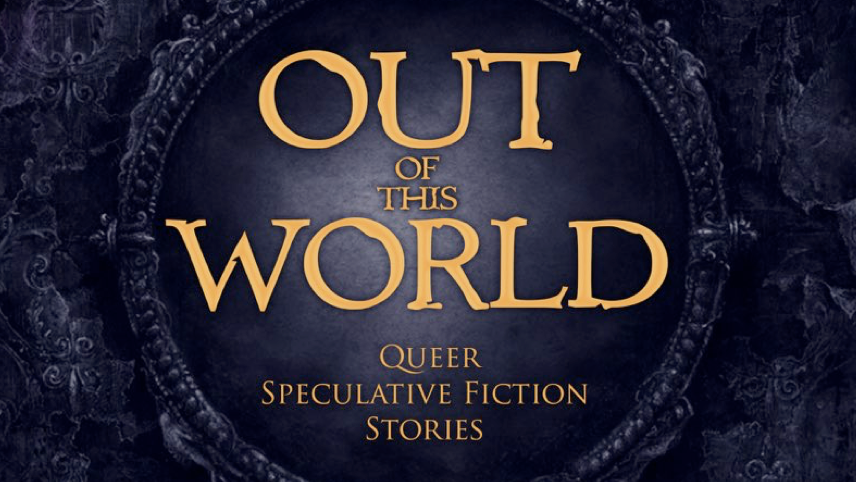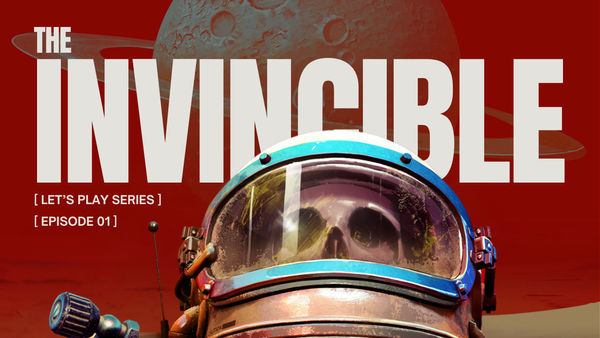Out Of This World — Catherine Lundoff | Review

If I said I met my vampire prince at a ball at the King’s palace, would you believe me?
— OUT OF THIS WORLD
OUT OF THIS WORLD is an excellent anthology — crucially in that it introduces new readers, such as me, to such a wide variety of stories by a single author. The short stories selected for this each are set in its own, sometimes fantastic, sometimes magical, often dark sort of world; drawing on their own tropes and genres. The distinctions of each are easily grasped, so deft is Lundoff in crafting the impressions of those worlds. I could see the cushy, Victorian furniture in Medium Méchanique in front of me as well as the mean streets a femme private eye walks in Red Scare.
I may have not connected with every single protagonist in each of the stories, and such is the nature of anthologies especially when the stories contained are not all of one genre and style. But more than that, it’s down to the diversity of Lundoff’s characters that you’ll meet some you don’t vibe with and others you immediately want to go sit down for coffee (or something stronger, your mileage may vary) with. Even more decidedly so, however, I can name my favourites.
My Top 3 Aka My Favourite Romances
While I very much enjoyed that not all of the stories in this collection are romances first and foremost — some are modern mythological hero journeys, like The Egyptian Cat and At the Roots of the World Tree, others are genre-savvy pulp with a twist, like Red Scare. All of them are stories of (more or less successful) self-discovery, and for some romance is part of that journey in a bigger way than others. All this to say: I do love me a good yearning love story, so it might come as no surprise that at least two of my absolute favourites from this collection are ones that have romance closer to their narrative centre.
But please do not take this to mean as me saying that the queerness of these character is any less of a point in the other stories. What’s great about both the romances and the less overtly romantic stories like At the Roots of the World Tree, where the character does find love as part of the resolution but it feels more like a happy accident, is that yes, the characters are queer, but it’s not the most interesting thing about them. Heteronormative thinking and homophobia do exist in these worlds, and they are recogniseable as such, but they are also not the point. And, certainly, our characters will not be cowed by them. It’s a fine line to tread, not stepping into clichés while still living the Gay Experience — Mona falling for a straight girl will be relatable to many, I suspect. But what’s great is that these are stories about heroes that happen to be gay. I’m just a sucker for romance and its tropes — I love writing romance most, so it’s no wonder I love reading it most, too.
A Scent of Roses
A Scent of Roses reeled me in because of the way it’s told, turning from present to past and then to potential future, delivering with each glance only pieces of the puzzle; revealing very slowly an emergent picture of our protagonist, Janet, and her husband knight, Tam. Both are yet still caught up in their memories of Court, in different ways and of two different worlds, and the loss of their child. He cannot escape his broken fascination with the fae, nor his wounds for being cast out; and yet it is his wife that is sought out by the Queen. It feels like a seduction waiting to happen, and when it comes time to make a choice, it hits Janet with all the force of something you saw coming a mile away and then still underestimated.
She was as fascinated with the Queen as her husband was, only at the time she had no eyes to see, it seems. But the Queen did, and now she’s come to ask her back. It’s the beginning of an adventure, preluded by yearning made all the more palpable by the distance between Janet and Tam that they only manage to bridge a few times. But when they do, these moments are sweet and speak of a true bond. He accepts her decision as she does his: a mark of a love that is true enough, if not for time and fate. But Janet will go with the Queen, and fulfill her destiny at her side — and hopefully have all of the excellent sex, because that dream was obviously hot.
Beauty
Beauty tickles me particularly because it hits all my trope buttons. Gothic, literary vampire themes with a hint of hot sauce and, for me honestly the best part: slow burn. Slow burn is difficult to achieve in 20 pages or less, and in Beauty, it comes out wonderfully. Going from disdain to reluctant fascination to “Allain wanted a soulmate, just not this one,” to eventual utter adoration is right up my alley. It’s what makes these tropes so delicious: of course I can tell by the end of the first page where this is going, that doesn’t stop me from clapping my hands and imagining all the ways both of them are going to be like, “Thanks, I hate it” before they eventually realise they’ve gone and caught all the feelings on top of copious homoeroticism.
To be fair, “Thanks, I hate it,” lasts all of, what, half a week for Raven, because underneath all that demonic transformation, there’s a heart of… well, maybe not gold. Definitely not silver, so let’s call it bronze. Raven has all the Hallmark movie snark and cruel beauty that make a good, brooding and alluring Gothic vampire, but then he’s also going and devoting himself to a young king even while fearing that his feelings are not returned in full; also giving it a delightful turn at mutual pining. I love mutual pining. When two characters are acting dumb as rocks even after declarations have been made, and it then takes the intervention of a third to make them see sense… delicious. Sign me up for a hundred chapters more of that, even if it makes me throw the book at the wall. (And to be honest, it’s what made Beauty win out over Medium Méchanique, because that one is delightfully horrifying and twisted and also happily lethal. Highly recommend!)
Red Scare
Red Scare is the “outlier” in this list of faves simply because romance is not part of the journey going forward: it’s part of solving the mystery and serves to illuminate Dash’s past, but he is not moving towards someone as he is moving towards the idea of something — hope. What Red Scare does, however, is provide a wonderful hardboiled noir detective story backdrop to a world that also features aliens and ray guns and a Committee that is keeping the citizenry in line by way of the spectre of an invading force from outer space. In other words: it’s McCarthy, only NASA has a bigger budget. As the title tellingly ties the story to the Cold War and the impending threat of communism that the junior senator from Wisconsin aimed to use to scare people into renouncing friendships, careers, and lives over mere associations, to preclude for instance writers from publishing what he saw as undesirable, so does the Committee the logical conclusion to the kind of ever-present policing that dystopian novels do so well in portraying.
Authoritarian regimes always feel the need to plaster themselves over everything, to remind “their public” at every turn that they are there, that they are watching, and the Committee has conjured up the image of the Kru’ush Magir, and kitted out the entire city (and, presumably, country) with scary mechatronics.
Add to that the delightful nods to Bogart, especially, and it’s the beginning of a beautiful friendship, Louis. Only Dash walks alone at the end, albeit embued with hope for the future. What I loved especially about the way Lundoff uses and evokes 1940s movies (Bogart’s specifically) — it draws the focus to male actors, not the ladies (Bergmann, et al) in accordance with Dash’s frame of reference for his own trans masc identity. Dash is no dame, no femme, even if the world would prefer him to be and stay in his lane (ha, Dashlane… I’m sorry) and the images that the world of Red Scare is anchored to in order to make it recogniseable for the reader support that image of himself. It tells us what kind of gent Dash aspires to be, too, giving us a better idea of him. Even just Bogie’s silhouette, homburg on his head, goes a long way for characterisation.
The Queerness Of It All
Cross-Dressing, Butch Clothing & Social Transition
What was very interesting to me was that this collection includes three stories that involve different ways that afab characters use male-coded clothing to negotiate their own identity.
It begins with Judith in Greating Reckonings, Little Rooms, who has adopted the disguise of a male version of herself, Shakespeare’s younger brother, not sister, in order to be able to get work as a playwright. Few people know her secret, and what most stuck out to me that, to the reader, the mask didn’t slip until William appeared on the scene. In the presence of both her lover, Emilia, and her friend, Kit Marlowe, Judith is described and presented as a young man. Only William breaks the spell, as he is closest to her and also the most resentful. It appears, due to Judith’s own use of pronouns, that it remains a ruse and that it is one of convenience, not identity. Unwittingly, this changes at the end, to assume another’s identity, which will force her to become the disguise.
The case lies differently with Rashida in The Egyptian Cat, as she dresses in butch clothing, and evidently not for convenience. The suit she wears is finely tailored, most likely bespoke, and it serves as well to disguise her when necessary, to throw pursuers off her tail or evade the gaze of anyone checking security camera footage, as it also reads as deliberate. Erica cannot tell, at first, whether there is a man or a woman standing outside her door, and it isn’t until she turns that the penny drops, which means the suit suggests a more adrogynous (which doesn’t have to mean thin as a stick, by the way) figure to match the short, curly hair. In short: support butch women!
By contrast, Dash in Red Scare is trans. He considers both surgery (crucially, only available on the black market and thus too risky to simply do, as if the process were not complex enough under ideal conditions) and getting his documentation changed. The latter would allow Dash to get more work, and the former is, by now, a secondary consideration as, socially, the transition has already happened. It includes the pain of his ex, Leandra, not coming to grips with this — and, perhaps, what that means about herself — and leaving him for his cousin Fortune.
Having these different experiences presented side by side in an anthology goes a long way to highlight how nuanced and diverse experiences of gender and self-representation are. Lundoff does a great job presenting these experiences to her readers by way of framing and context provided by the characters’ relationships, by highlighting clothing details that draw the eye to aid characterisation, and by using, as I mentioned, intertextual references to give the audience a frame of reference that aids Dash’s own identity-making.
A big thank-you to Queen of Swords Press for providing me with an ebook version of Out Of This World as part of their quarterly newsletter give-away! It was a joy to read.

Publisher Queen of Swords Press
Genre Speculative Fiction
Narrative voice First person, Third person
Pairings Gen, F/F, M/M
Content warnings Death, Sexual Assault/Rape, Blood & Gore, Violence
Maturity rating 16+




